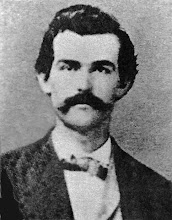Atheists point to "the problem of evil" as a reason to do away with theism, but more pointedly, Christianity. There's evil in the world, so either the "loving God" isn't all powerful, or the "all-powerful God" isn't loving. This has been volleyed around plenty of times by authors and philosophers, so I don't want to spend too much time on it. My question in response would be (though not my own original thought), define evil. Christopher Hitchens loves to spat the question "by what right?" to call into question Christianity's authority. Doesn't the same question call into question his, or rather, the authority he cites to make such a claim? For me, the most compelling problem atheists like Richard Dawkins, Sam Harris and countless blogging and "youtubing" atheists face is the problem of morality.
My first introduction to this topic came my freshman year of college (though in JC, the term "freshman" is like calling a Starbucks employee a 'partner' or an Office Max worker an 'associate'). The professor in my class, Philosophy of Religion, opened the first day of class by saying "I do not believe in moral absolutes. As long as what a person chooses to do does not harm another, it is universally good for them to do so." Being 18, my mind didn't immediately snap to what it later arrived at: she was making a morally absolute statement. She put up moral parameters like what I observed, she simply moved her fences in closer together. By saying "as long as (what a person chooses to do) does not harm someone another"she was making the moral statement that causing someone harm is wrong. Furthermore, she was implying she held to a concrete definition of the word "harm" and stood against it.
That was fine by me, because I wasn't the one up there saying I didn't believe in moral absolutes. It did, however, help me realize the importance of properly framing an argument. Had I chosen to argue a set group of points, i.e., "there are too moral absolutes because the Bible says so" or everyone knows cheating is wrong" or anything else they may have immediately made sense to me, it would have taken us (and I'm betting, the class) down a road that runs right into her worldview. But my stopping the movie as the credits still roll, she must qualify what she said.
She implied a standard. Without a standard for morality, it simply cannot exist. Saying "history shows that morality is a vital part of the evolution of society" implies that such a statement can be qualified (how I'd love to introduce someone who holds that view to a Viking) and that "morality" is, again, agreed upon even without a standard by which to measure it.
The first thing a communist regime does is eliminate the existing government. The second thing it does is eliminate religion. In his book
The God Delusion, Dawkins writes about how "no atheist in the world would bulldoze Mecca- or Chartres, York Minster or Notre Dame . . . ." His point being that the atheist movement would never try and destroy religion by force, yet one needs only to look back at Stalin's Russia. In December of 1931 he ordered the largest church in Russia, the Cathedral of Christ the Savior, dynamited in broad daylight as thousands of stupefied citizens watched (David Aikman's
The Delusion of Disbelief). See, the most notorious atheists of the last century: Joseph Stalin (16 million), Adolf Hitler (11 million), Mao Tse-Tung (14 million) and Pol Pot (4 million) murdered a combined 45 million people. That's just slightly more than the 3,000 people who died in the Spanish Inquisition. Why does it matter that these men were all atheists? Well, they had the same standard (or absence of).
The point of this blog the evils of atheism (though I'm not denying them).
My point is: you say the murder of these 45 million people plus the 3,000 of the Inquisition was evil and wrong? By what right?
